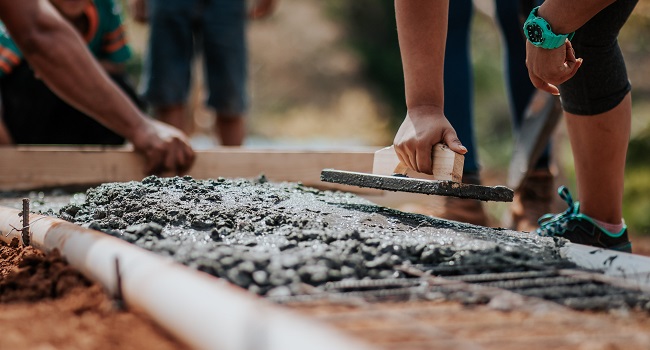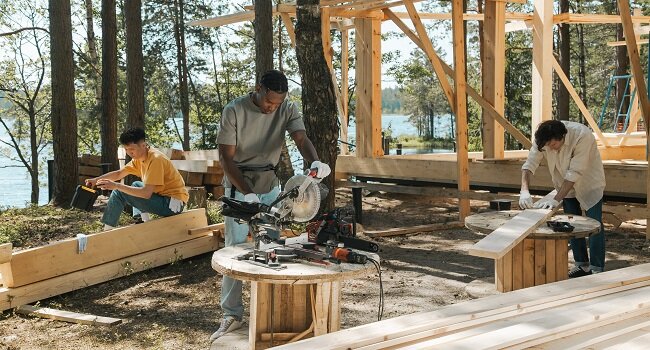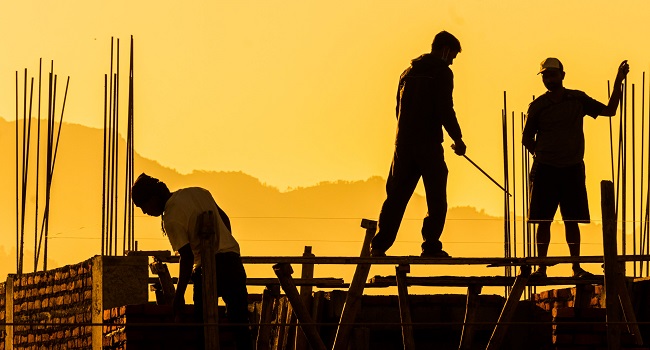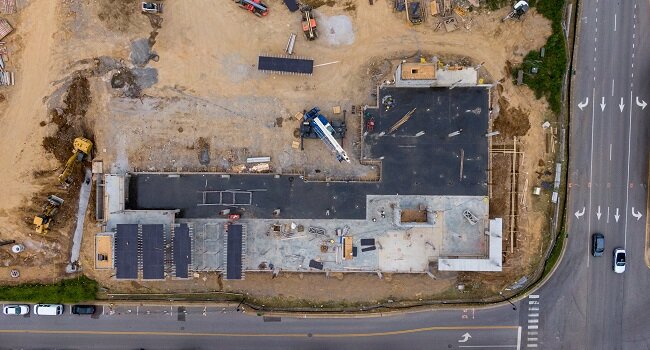Choosing the right home builder is a decision of paramount importance in the journey of constructing your dream home.
The builder you select sets the tone for the entire project – impacting not only the final outcome but also your experience throughout the building process.
The right builder can transform your vision into reality, ensuring that every aspect of your home reflects your personal style, needs, and preferences.
However, this decision is not without its challenges. Selecting a home builder involves navigating a plethora of choices and considerations.
It requires thorough research, careful evaluation, and a deep understanding of your own needs and expectations.
The builder you choose should not only have the technical skills and experience but also the ability to understand and align with your vision.
Understanding Your Needs
Before diving into the search for a builder, it’s crucial to have a clear understanding of what you want in your new home. This clarity will guide you in selecting a builder who can meet your specific requirements.

- Personal Style and Preferences: Start by defining your personal style. Are you leaning towards a modern, minimalist design or a more traditional, classic look? Your home should be a reflection of your personality and lifestyle.
- Size and Layout: Consider the size of the home you need. How many bedrooms and bathrooms? Do you need large open spaces, or are cozier rooms more your style? The layout of your home should suit your daily life and accommodate future changes.
- Location: The location of your home is as crucial as the house itself. Consider factors like proximity to work, schools, amenities, and the overall neighborhood environment.
- Budget: Perhaps the most critical factor is your budget. Have a clear understanding of how much you are willing to spend. Remember to account for not just the construction costs, but also for any additional expenses like landscaping, interior decoration, and unforeseen contingencies.
- Specific Features: List any specific features you desire in your home – a home office, a sustainable design, smart home technologies, etc. This will help you in identifying builders who are experienced in these areas.
By understanding these aspects of your dream home, you are better positioned to communicate your needs to potential builders and evaluate their ability to deliver on your vision. This initial step of self-reflection and planning is crucial in setting the stage for a successful home building experience.
Researching Potential Builders
Finding the right builder for your home is a crucial step in the home-building process. Here are some strategies to effectively research potential builders:
- Local Builder Associations: Start by contacting your local home builders’ association to obtain a list of builders who construct homes in your area. These associations can provide a wealth of information about builders’ track records and reputations.
- Online Reviews and Testimonials: In the digital age, online reviews are invaluable. Websites like Google, Yelp, and even social media platforms can provide reviews and testimonials from previous clients. Pay attention to both positive and negative reviews to get a balanced view.
- Builder Portfolios: Review the portfolios of builders you are considering. Their past projects can give you an idea of their style, quality, and the types of homes they are experienced in building. Look for portfolios that include a variety of styles and sizes to assess the builder’s versatility.
- Community Reputation: Word-of-mouth is still one of the most reliable sources of information. Ask around in your community, particularly from friends or family who have recently undertaken construction projects.
Tips for Evaluating a Builder’s Reputation and Past Projects
- Consistency in Quality: Look for consistency in quality across different projects. A builder with a track record of quality across various styles and sizes of homes is a promising sign.
- Timeliness and Budget: Find out if the builder has a history of completing projects on time and within budget. Delays and budget overruns can be stressful and costly.
- Client Feedback: Direct feedback from past clients can be extremely insightful. Ask the builder for references and don’t hesitate to reach out to them.
Evaluating Builder Credentials
Choosing a builder with the right credentials is crucial for a successful build. Here’s what to look for:
- Licensing: Ensure that the builder is licensed to operate in your area. A licensed builder is more likely to be knowledgeable about local building codes and regulations.
- Insurance: It’s essential that your builder has proper insurance, including liability and workers’ compensation insurance. This protects you from potential liabilities in case of accidents or damage during construction.
- Professional Affiliations: Builders affiliated with professional organizations like the National Association of Home Builders (NAHB) are often more committed to maintaining certain standards in their work. These affiliations can also mean that the builder is up to date with the latest trends and best practices in the industry.
- Experience and Expertise: Evaluate the builder’s experience, especially in building the type of home you want. Experienced builders are more likely to anticipate and solve problems efficiently.
Choosing the right builder is not just about the end product; it’s also about ensuring a smooth and enjoyable building process. Take the time to do thorough research and choose a builder who aligns with your needs and expectations.
Assessing Communication and Compatibility
Effective communication is a cornerstone of any successful home-building project. It is essential to ensure that the builder you choose is not only easy to communicate with but also responsive to your queries. A builder’s ability to articulate the construction process clearly and address your concerns promptly is indicative of their professionalism and customer service orientation.

Equally important is the builder’s understanding and alignment with your vision for the home. In your initial interactions, observe their enthusiasm for your ideas and their willingness to collaborate. A builder who shows a keen interest in your vision and offers constructive suggestions while respecting your preferences is likely to be a good partner in the construction process.
Transparency from the builder is another critical factor. Choose a builder who is open about costs, potential challenges, and realistic about timelines. A builder who candidly discusses potential issues or delays demonstrates reliability and honesty.
Regular updates and check-ins throughout the construction process are also vital. Assess whether the builder has an effective system in place to keep you informed of the progress and any developments.
Visiting Past Projects and Model Homes
Visiting the homes constructed by your potential builder is an invaluable step in assessing their suitability for your project. When you visit these homes, pay close attention to the quality of the construction, the materials used, and the overall finish. This firsthand look can give you a clear picture of what to expect for your own home.
Take the opportunity to evaluate if the builder’s style resonates with your own. Notice how they design spaces and utilize different elements. This can be particularly telling if you have specific design styles or features in mind for your home.

Gathering feedback from past clients can offer deep insights into their experience with the builder. If you have the opportunity, speak with homeowners of the properties you visit to understand their experience during and after the construction process.
Model homes, if available, are also a valuable resource to see the builder’s standard offerings and get a feel for their baseline quality. This can be especially helpful in understanding the level of customization and detail the builder is capable of providing.
These visits and interactions can provide critical information and help you make a well-informed decision about your home builder. A builder’s past projects are a reflection of their craftsmanship and commitment to quality, and they can be a decisive factor in your choice.
The Importance of Customization and Flexibility
The ability of a builder to accommodate custom requests and changes during construction is vital in creating your dream home. To ensure this flexibility:
- Communicate Clearly: From the outset, clearly communicate any specific requirements or custom features you envision for your home. This sets the stage for a builder to understand your expectations.
- Builder’s Flexibility: Evaluate the builder’s past projects and client testimonials to gauge their flexibility in handling custom requests. Builders who have a wide range of styles and customizations in their portfolio are more likely to accommodate unique demands.
- Change Order Process: Discuss the builder’s process for handling changes during construction. Understanding their approach to change orders, including timelines and costs, is crucial.
- Openness to Collaboration: A builder who is open to collaboration and suggests improvements or alternatives to your ideas can be a valuable asset.
Negotiation Strategies
Negotiating with builders is an essential part of the home-building process, particularly when it comes to terms, prices, and timelines.
- Research Market Prices: Before negotiating, research the current market prices for construction projects similar to yours. This knowledge will give you a solid foundation for discussions.
- Clearly Define Scope and Quality: Be specific about the scope of work and the quality of materials expected. This clarity can prevent future misunderstandings and unexpected costs.
- Payment Schedule: Negotiate a payment schedule that aligns with project milestones. This ensures that payments are made for work completed to satisfaction.
- Timeline Flexibility: While it’s important to have a timeline, allow for some flexibility. This can be beneficial in accommodating any unforeseen delays or changes.
- Negotiate Upgrades: If you’re interested in specific upgrades, discuss these upfront. Sometimes, builders can offer these at a reduced cost as part of the overall project.
- Get Everything in Writing: Once you have negotiated terms, ensure that everything is clearly documented in the contract. This provides protection and clarity for both parties.
Negotiation is not just about reducing costs but ensuring that you receive value for your investment while maintaining a good relationship with your builder.
Takeaway
Selecting the right home builder is a critical step in the journey of bringing your dream home to life.
It’s essential to enter negotiations well-informed and with clear expectations, ensuring both value and satisfaction in the construction of your new home.
Ultimately, the time and effort invested in choosing the ideal builder will pay off in the realization of a home that meets your desires and needs, built to your specifications and standards.































